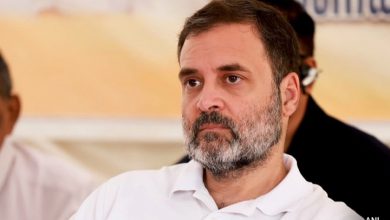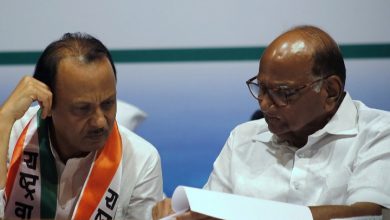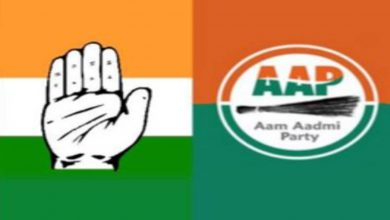Gujarat Rajya Sabha polls: Ahmed Patel wins battle of strategists; Amit Shah has to wait for his revenge

The Rajya Sabha election in Gujarat on Tuesday saw a high-stakes battle that went down to the wire. But at the core of the battle was the political rivalry between BJP president Amit Shah and Congress’ war horse Ahmed Patel. Electoral gains apart, the contest boiled down to a rather ‘personal’ battle, with each of the party strategists’ prestige at stake.
After the Election Commission declared Patel as elected to the Rajya Sabha early Wednesday – after a contest marked by defections, cross-party voting and procedural violations – he would’ve breathed a sigh of relief, for a loss in his home state would have severely dented his reputation as a political manager.
the political secretary to Congress chief Sonia Gandhi, betrayed the personal nature of this rivalry when he said: “Shah has a personal grudge against me which is why they are going all out, using the most underhand means that I have ever seen in my 40 years of politics to ensure that I lose. Money power, muscle power, you name it – they have deployed it.”
Shah, on his part, pulled all stops to try and derail Patel’s bid for a fifth term in the Upper House. In the end, ironically, as this report in The Wire points out, it was Shah’s personal involvement in the operation that proved to be the party’s undoing with the EC invalidating the votes of two Congress defectors since they had showed their ballots to the BJP president.
While Shah made his maiden entry into the house of elders, as did Information and Broadcasting Minister Smriti Irani, it was apparent that the focus was entirely on ensuring Patel’s defeat. The fact that Union ministers Arun Jaitley, Ravi Shankar, Nirmala Sitharaman, MA Naqvi, Piyush Goyal and Dharmendra Pradhan marched down to the Election Commission not once but twice to try and sway the outcome of this one particular seat tells us that the battle carried much more than just its electoral significance.
What sparked this fierce battle?
This election was a trial by fire for the Congress, which has suffered successive electoral defeats – barring the Punjab Assembly election – since 2014. It has been dogged by infighting and has not really treated the electoral battle in Gujarat with due urgency.
“It is surprising that cross-voting by Congress MLAs in the recent presidential elections, an indicator of the party’s poor intelligence network and the high command having little control over its legislators, did not prepare the party for Vaghela’s resignation and its fallout ahead of the Rajya Sabha elections.”
Thus, defeat in this election would have been a blow to the Congress, whereas a win would not be much more than a morale booster.
But the import of the seat was easily dwarfed by the man contesting it. As this Open piece elucidates: “Patel is a man who has for years cultivated an ordinariness to inform his public profile, as if he were determined to obscure his importance to the party and its chief. But this mask of a pedestrian persona, most Congress leaders acknowledged in hushed whispers, was a cover for the bloodless political coups he was entrusted with—and excelled at—to ‘strengthen the party’… Patel’s number was the one-stop button that Sonia Gandhi pushed in all emergencies.”
But at the Centre of this fierce battle was a very personal rivalry. As Rajdeep Sardesai writes for DailyO: “A defeat of Patel would also mean that Shah’s personal ‘revenge’ is complete. Ever since he was jailed in 2010 in the Sohrabuddin encounter case, Shah has been determined to get at his political ‘enemies’,”
“The BJP president is convinced that Ahmedbhai had a key role to play in his arrest. He wants to settle scores by ensuring that the man who he believes set the CBI on him is now denied a Rajya Sabha seat.”
As a report in The Scroll states, the Sohrabuddin case was so damaging for Shah that, “in 2010 he was jailed for it. He was also banned from entering Gujarat till 2012, with the Supreme Court fearing that he would influence the case. As a result of this, Shah was unable to hold any ministerial posts, even though it is widely held that he is now the most powerful person in the Bharatiya Janata Party after Narendra Modi himself.”
The elections boiled down to the political tenacity of two master strategists. At test here were Shah’s determination to exact revenge against Patel and the Congress for their alleged role in the Sohrabuddin case and Patel’s tenacity in holding his ground. The strong sub-text in this contest was that a defeat for Patel would significantly curtail the political clout of the Congress’ focal centre, the Gandhis.
Though Patel emerged victorious, the fact that Shah was able to make him desperate for a win that he should have easily managed is a reflection on the Congress’ leadership troubles and a testament to the latter’s political resolve.







